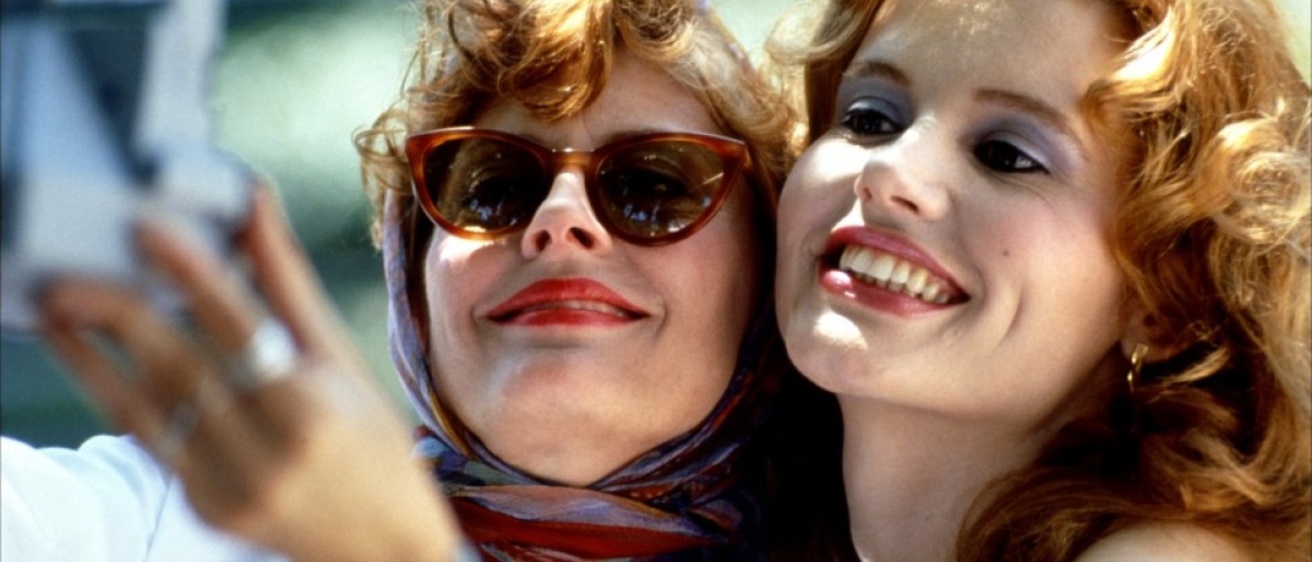By Kat Trout
As a lesbian who aspires to be a filmmaker, I have always questioned my relationship with film. How do I go into something that has hidden my community for so long? How do I embrace film when it only recently openly embraced me? It was while watching Cheryl Dunye’s The Watermelon Woman I realized my answer. In The Watermelon Woman, when Cheryl and Diana first meet in the video store, they identify each other as potential partners by name dropping Ridley Scott’s sci-fi classic Alien. Rather than explicitly name their queerness, they understood it through the implications of interest. I realized through this scene how cinema has become a way for queer folk to safely identify each other. Alien, Aliens,What Ever Happened to Baby Jane, Mommie Dearest, and so forth have become classics in the queer community despite not openly telling LGBT+ stories. Ridley Scott’s film Thelma and Louise is among these films, perhaps being one of the most iconic queer-claimed films in cinema history. The ending of Thelma and Louise makes the film a tale of sapphic escape. Their last act together before dying is to kiss. To me, this kiss is a vow. In life or death, sickness or health, Thelma and Louise are there for each other. Every action taken is shared, even if drastic. In every way, they reject feminine norms and expectations to be with each other instead. I do not think it is unusual that queer folk found representation in this film– I did myself. When I watched Thelma and Louise as a little kid, I saw myself. I saw queer women stuck between the masculine and feminine binary, unhappy with the strictness of categories. I saw queer women who felt stifled by the femininity expected by them. I saw queer women who wanted to escape a world that favored men. Like Diana and Cheryl used Alien to find solace in each other, I use Thelma and Louise to embrace other queer folk and recognize myself. Queerness is cemented deep in the roots of cinematic history– just because it is not explicit does not mean it isn’t there. Find the films you identify with and connect to your community.
